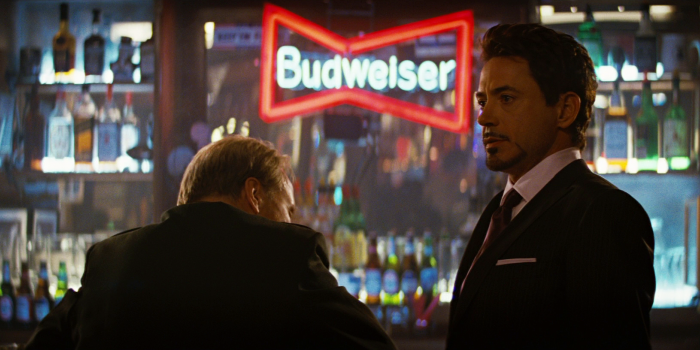
Cast: Stephen Dorff, Abdallah El Akal, Ali Suliman
Director: Eran Riklis
Country: UK | Israel
Genre: Adventure | Drama | Thriller | War
Official Trailer: Here
Editor’s Note: Zaytoun opens in limited release tomorrow, September 20th, and is now available on VOD
Continuing his penchant for plant-based Palestine metaphor, Lemon Tree director Eran Riklis, courtesy of debut scribe Nader Rizq, turns his eye toward an altogether more obvious symbol in Zaytoun. The title, the Arabic word for olive, refers to the potted plant the young Palestinian refugee protagonist Fahed carries everywhere with a fervency to make Léon’s assassin eponym blush. How often can a movie’s main character be seen to literally lug its theme around with him at every turn? This kid’s botanical obsession is a keen reminder, as though we needed it, of the peace that’s desperately absent from this war-torn region circa 1982.
A nuanced storyteller Riklis may not be, but an earnest artist he remains, genuinely invested in the wider world context to which his work speaks and interested in constructing characters whose drama expresses the personal implications of political policy.
 Clumsy and overzealous though the movie’s approach may be, it’s born of the same genuine concern that permeated that earlier film through all its similar issues of on-the-nose, unsubtle symbolism. A nuanced storyteller Riklis may not be, but an earnest artist he remains, genuinely invested in the wider world context to which his work speaks and interested in constructing characters whose drama expresses the personal implications of political policy. In that respect, there’s a certain charm to Zaytoun, which finds the newly-orphaned Fahed reluctantly guiding former POW Israeli fighter pilot Yoni to the safety of the border. Setting his highly personalised story of loss within the framework of a buddy-road movie, Rizq regularly risks trivialisation in the tepid ease of his humour, but his work finds firm guidance in Riklis’ steady hand.
Clumsy and overzealous though the movie’s approach may be, it’s born of the same genuine concern that permeated that earlier film through all its similar issues of on-the-nose, unsubtle symbolism. A nuanced storyteller Riklis may not be, but an earnest artist he remains, genuinely invested in the wider world context to which his work speaks and interested in constructing characters whose drama expresses the personal implications of political policy. In that respect, there’s a certain charm to Zaytoun, which finds the newly-orphaned Fahed reluctantly guiding former POW Israeli fighter pilot Yoni to the safety of the border. Setting his highly personalised story of loss within the framework of a buddy-road movie, Rizq regularly risks trivialisation in the tepid ease of his humour, but his work finds firm guidance in Riklis’ steady hand.
If the film’s a success—and to say it is might be to do a disservice to the word—it’s down to the work of leads Abdallah El Akal and Stephen Dorff. El Akal is no stranger to this conflict, having played similar—if sometimes smaller—roles in A Bottle in the Gaza Sea, Lebanon, David & Kamal, and Riklis’ own short The Soldier and the Boy. Here he confidently accepts that classic mantle of the child through whose eyes the horrors of war are seen. If slightly broad and braggadocio in the face of death and despair, his is an attractively unyielding young hero, formidable to a flaw—and deliberately so—but never not uninvolving. His repartee with Dorff is similarly prone to a sweeping sort of generalisation, though the elder actor grounds his stoic soldier in a more adult approach to the surrounding chaos.
Rizq’s plotting is an inconsistent stop-start structure pitched somewhere the archetypal road movie narrative and a series of overstretched hide-and-seek set pieces that serve only to extend the story well beyond the point of welcome.
 For all the fine work done by this endearing odd couple, though, it’s scarcely able to overturn the onerous obstacles littered through Rizq’s haphazard script. Opening with Yoni held in a cell under watch of Fahed and his young friends, the film finds fatalistic shades in the refugee camp before fleeing their confines and about-turning tonally. The subsequent embarking upon a typical cross-country journey may bring with it a welcome influx of warmth, but it comes at the cost at coherence: Rizq’s plotting is an inconsistent stop-start structure pitched somewhere the archetypal road movie narrative and a series of overstretched hide-and-seek set pieces that serve only to extend the story well beyond the point of welcome.
For all the fine work done by this endearing odd couple, though, it’s scarcely able to overturn the onerous obstacles littered through Rizq’s haphazard script. Opening with Yoni held in a cell under watch of Fahed and his young friends, the film finds fatalistic shades in the refugee camp before fleeing their confines and about-turning tonally. The subsequent embarking upon a typical cross-country journey may bring with it a welcome influx of warmth, but it comes at the cost at coherence: Rizq’s plotting is an inconsistent stop-start structure pitched somewhere the archetypal road movie narrative and a series of overstretched hide-and-seek set pieces that serve only to extend the story well beyond the point of welcome.
Zaytoun’s greatest success, in the end, may be its effective communication of the same exasperation its characters feel on consistently being withheld from reaching their destination. How tiring it is to have Rizq deploy yet another trite scene of faux-tension, doing less to embellish the movie’s thrills than to take away from the character time it needs. Riklis’ efforts to abate extend, alas, only to visualising the evolution of this relationship: his occasional, impressive tableaux vivants cast the pair against the minimal light of the setting sun, successive shots seeing them closer and closer together. Would that the writing and its aims could converge in such a manner; to see the film is to see it struggle to say what it means to.
[notification type=”star”]53/100 ~ MEDIOCRE. Zaytoun’s greatest success, in the end, may be its effective communication of the same exasperation its characters feel on consistently being withheld from reaching their destination.[/notification]



